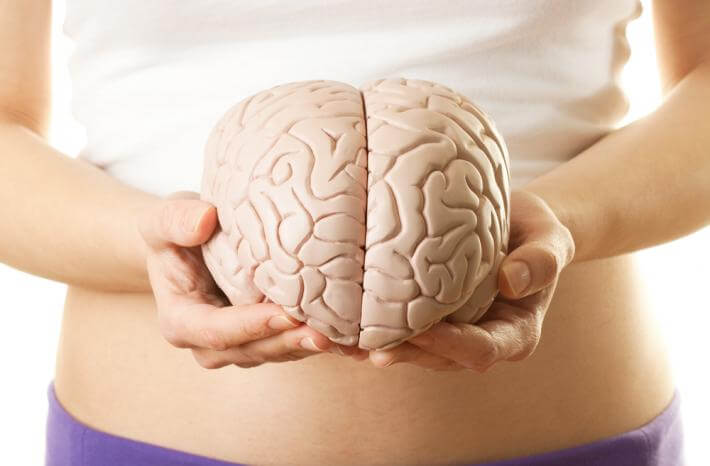How Exercise Affects Your Brain
Wave after wave of studies, papers, articles and hypothesis exploring the links between mental and physical fitness are emerging from labs and universities all over the world. All this research will hopefully give us even more motivation to go get fit.
Brock Armstrong

Listen
How Exercise Affects Your Brain
Gone Mainstream
As the saying goes, you know something is legit when mainstream media gets in on the action. Ha ha!
Earlier in 2017 CNN published an article called Three Ways Exercise Benefits Your Brain and in that article they highlighted these three beneficial factors of exercise.
- Boost Your Mental Fitness
- Banish Stress for Good
- Age With Grace
Let’s look what they said about each of those.
In the article they laid out “boost your mental fitness” like this; there are about 86 billion neurons in your head, all designed to give orders to the rest of your body with the help of chemical messengers called neurotransmitters. These neurotransmitters regulate everything in your body from mood, to sleep, to memory, and even hunger.
Studies show that low levels of two of these neurotransmitters in particular, glutamate and gamma-aminobutyric acid (GABA), often lead to depression. But according to a study in The Journal of Neuroscience, moderate exercise can increase these levels which can result in increased resilience and a capacity to respond to mental challenges. All of this is directly connected to a concept known as “mental fitness” which sounds pretty darn good to me.
Which is helpful if you’re getting chased by a sabertooth tiger but not if you’re just sitting at your desk.
In terms of “banishing stress for good,” the CNN article said that when you’re stressed out your brain secretes the “fight or flight” stress hormone called cortisol. Cortisol is very helpful if you’re getting chased by a sabertooth tiger and need to run for the hills but if you’re sitting quietly at your desk (with no tigers in sight) and your cortisol levels are still elevated, it can cause problems (like heart disease, diabetes, and hypertension).
The solution for this appears to be hitting the track, pumping some iron, or punching the heck out of the heavy bag. All of these activities are thought of as something called “controlled stress,” which actually sharpens your brain’s stress response, helping you turn stress off and on at more appropriate times.
And finally CNN addressed the “aging with grace” factor by pointing out that older adults who exercise actually have larger brain volumes than those who don’t, according to a 2006 University of Illinois study. In that study, sedentary volunteers aged 60 through 79 participated in a six-month exercise program that met three times each week. Half of the volunteers did aerobic exercises such as walking (again with the walking) and the other half did stretching and toning exercises. At the conclusion of the study, the aerobic exercise group showed greater increases in brain volume when compared to participants who did toning and stretching exercises.
The icing on the cake? The hippocampus (which is associated with memory and learning) which usually shrinks with age, is larger in people who are gettin’ down with their bad selves! Now, this is unlikely to make you smarter but it will certainly help you remember the important stuff. If you have ever watched an aging loved one start to forget more and more of their former life and their family, you’ll know that this is an excellent reason to get fit – starting now!
How Does This Work?
Increased blood flow to the brain, surges of growth hormones, and massive expansion of the brain’s network of blood vessels.
Researchers are still working on the why and the how and are trying to determine the critical factors that make exercise so good for the brain but the focus seems to be on: increased blood flow to the brain, surges of growth hormones, and massive expansion of the brain’s network of blood vessels.
Neuroscientists have known since that 1999 study that brain-derived neurotrophic factor (BDNF) is released during aerobic exercise and that stimulates neurogenesis (the growth of new neurons) but more recently scientists have honed in on an exercise activated hormone called Irisin. And I gotta say, if you need one more reason to get fit, you can add Irisin to your list. In 2012 scientists discovered that Irisin has the ability to help maintain healthy body weight, improve cognition, and slow the aging process. Now that is a trifecta that I can get on board with.
So, after listing all of these factors, we can see that the cognitive benefits are nearly as impressive as the physical benefits of exercise. This also reminds us that our brains and bodies don’t operate in isolation, independent of each other. What you do with your body and what we put in our body, benefits or harms your mental faculties as much as it adds or subtracts girth from your biceps or your ability to run a 10-minute mile. Being sedentary all day, every day, is as dangerous for your waistline as it is for your mind. So, don’t wait. Find an activity and do it. Or, as we learned again and again today, just go for a walk.
For more info on the brain, tips on how to get your mind and body fit, and to join the smarty-pants conversations, head over to Facebook.com/GetFitGuy or twitter.com/getfitguy. Also don’t forget to subscribe to the Get-Fit Guy podcast on Apple Podcasts, Stitcher, Spotify, Google Play or via RSSopens XML file .
Pages
- « first
- ‹ previous
- 1
- 2
- 3


